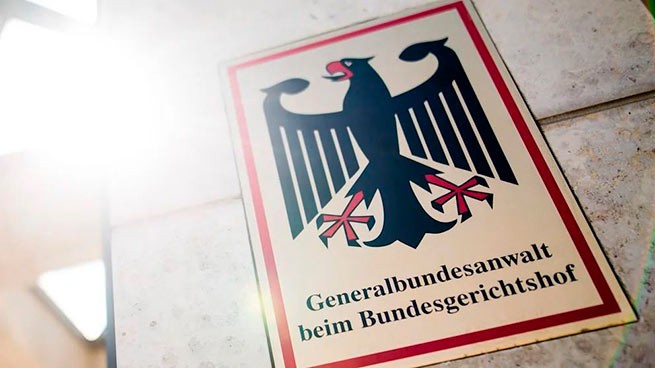High inflation and uncertainty fueled by global geopolitical unrest are pushing consumers to make more conservative shopping choices this holiday season.
Polls show Greeks are cutting back on spending on gifts, entertainment and travel, as well as buying cheaper groceries and less holiday food to avoid wasting money.
“Family Party Basket”
The Ministry of Development and Competitiveness aims to support consumers by providing a “basket” (with products for the festive table at a good price) from 14 December. It will include additional types of meat, as well as Christmas dishes (tsoureki, Christmas cake – βασιλόπιτα, etc.). At the same time, specialists are studying the possibility of creating a new basket for a short holiday period, which will include toys (gifts for children).
Consumers are cautious
Greeks will be more modest in their spending this coming Christmas due to rising costs of living, said Thanos Mavros, partner at EY Consulting Services in Greece and head of EY Consumer Goods and Retail in Southeast Europe. According to the latest edition of the EY Future Consumer Index, a regular global survey, 89% of respondents say they plan to spend less or no more on their families this holiday season, while 37% of respondents will buy less food for holiday meals to avoid spending during the holiday season. this holiday season. This, according to Mr. Mavros, is not surprising in today’s hyperinflationary environment, when 92% and 87% of respondents, respectively, are worried about their country’s economy and their personal finances.
However along with economic instability consumers are also citing environmental concerns as the reason for the reduction in consumer spending this holiday season. Characteristically, 41% of respondents say they intend to buy fewer goods for environmental reasons. According to EY research, the percentage of consumers who put “care for the planet” first when shopping is now the same (25%) as those who prefer an affordable product. “We are seeing many signs that a significant proportion of citizens are moving towards conscious consumption,” Mr. Mavros says, adding that “businesses should take this seriously.”
How citizens save money
At the same time, a study conducted by the Research Institute for Consumer Goods Retailing (IELKA) on a sample of 1,000 consumers from November 9 to 11, 2022 shows a clear tendency for consumers to save money for the purchase of basic goods and services. In particular, 80% of the population say they have canceled spending on entertainment such as meals, vacations, travel, etc., 66% say they have reduced their electricity consumption, 62% say they have postponed maintenance and repair work, for example, at home or in the car.
In addition, 55% say they have generally cut back on food and groceries purchases, 25% say they have used money from their savings to meet their needs. 20% have delayed paying bills or stopped paying their obligations (debts), and 15% say they have extended their working hours or found a second job to increase their income. 10% of consumers surveyed have increased their use of credit cards to cover their needs. And only 9% of the population said that they do not take any action at all and they do not care about inflation at all.
What do consumers expect from the Christmas market?
The recent NielsenIQ Consumer Insights “Unwrapping Europeans Holiday Outlook” survey of over 800 Greek consumers seeks to paint a picture of how citizens will behave during the New Year holidays, i.e. what and how to spend money.
The results of the survey showed that the expected spending for Christmas this year is equal to or higher than last year. 45% of households in Greece say their budget for food and drink at home or consumption outside the home, gifts and travel will not change compared to 2021. 40% would like to spend less money on these categories this year, while 15% of buyers say they will increase their budget for the upcoming holiday season.
According to the same survey, consumers say that ready to take advantage of any discount to pre-purchase gifts, drinks and food for the holidays. Cheese (81%), fresh meat (74%) and Christmas sweets (64%) are the three most common food categories that consumers plan to buy at Christmas. Among the beverage categories, beer (61%) and wine (60%) will be added to the basket. Even though Greek consumers are looking for promotions and discounts, they will not hesitate to buy luxury items at Christmas: 25% of respondents say they will buy luxury items in the fresh meat category, and in the beverage category, luxury brands between wines (20%) and champagne (22%). Among the Christmas gifts, Greek consumers will choose this year mainly:
- clothes/shoes (55%),
- toys (43%),
- gadgets, computer games (28%),
- cosmetics (37%),
- memorable souvenirs (25%).
71% of consumers go online to get ideas and inspiration for gifts they plan to give. The online store (69%) for the purchase of technology goods (gadgets and games) will be chosen as the purchase channel to a greater extent than the physical store (52%).







More Stories
ENFIA: Find out when the refund deadline is for those who want a full tax refund
Imputed income: how freelancers can challenge it, who is exempt from paying taxes
Calculation of benefits and Easter gift from April 19